Abstract Submission


For more information contact us at:
conference@3d-icomas.org
Outline Program
Download the Abstract Book
which includes the Conference Program
Last updated, December 3
Confirmed Participants
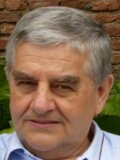
Gino Mariotto
University of Verona, Italy
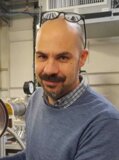
Andrea Sanson
University of Padova, Department of Physics and Astronomy, Italy

Adolfo Speghini
University of Verona,
Department of Biotechnology, Italy
Fluoride-based nanocomposites for photodynamic therapy exploiting near infrared radiation

Nicola Daldosso
University of Verona, Department of Engineering for Innovation in Medicine, Italy
Luminescent porous silicon as a multimodal platform for nano-theranostics

Arun Kumar
Polytechnic University of Marche, Italy
2D black phosphorus for field effect transistor and optoelectronic applications

Michele Cassetta
University of Verona, Dept. of Engineering for Innovation in Medicine, Italy
Predicting silicate melt viscosity with neural networks

Mara G. Freire
University of Aveiro, Portugal
Protein based biomaterials from waste biomass
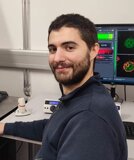
Andrea Belluati
Technische Universität Darmstadt, Germany
Polymer materials engineered via synthetic biology platforms

Hiroyuki Aoki
J-PARC Center,
Japan Atomic Energy Agency, Japan
Interface structure of epoxy adhesives in high humidity revealed by neutron reflectometry
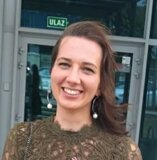
Daria Jardas Babić
University of Rijeka - Faculty of Physics and NANORI, Croatia
Photocatalytic degradation of microplastics using ZnO films deposited by plasma-enhanced atomic layer deposition

Andrea Erxleben
University of Galway, School of Chemistry, Ireland
Crystallization of single- and multi-component pharmaceutical solids from the gas phase: crystal structures, polymorph selectivity and morphology control
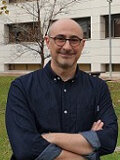
Juan Francisco Sanchez Royo
University of Valencia, Materials Science Institute, Spain
Highly anisotropic Bi2S3 for polarisation-dependent optoelectronic devices

Michael Schneider
Vienna University of Technology, Austria
Pure and doped aluminum nitride:
from material noise to bistable devices
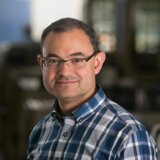
Alex Adronov
Brockhouse Institute for Materials Research, McMaster University, Canada
Selective interactions of novel conjugated polymers with carbon nanotubes
for sensing and device applications

Nguyen Hoa Hong
Masaryk University, Dept. of Condensed Matter Physics, Czech Republic
Potential 2D ferromagnetism in semiconducting oxides for spintronic applications
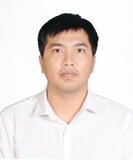
Pham Sy Nguyen
Masaryk University, Dept. of Condensed Matter Physics, Czech Republic
Room temperature ferromagnetism in laser-ablated Ga2O3 thin films


Pierluigi Bilotto
TU Wien, Institute of Engineering Design and Product Development, Austria
Bubble-assisted electrochemically MXenes: from synthesis to tribological applications
Marco Giarola
University of Verona, Italy
Enabling research excellence through shared technology: the Technological Platform Centre of the University of Verona

Darko Makovec
Jožef Stefan Institute, Slovenia
Mn-, Co-, and Ni-substituted barium-hexaferrite nanoplatelets
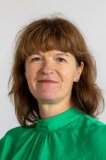
Darja Lisjak
Jožef Stefan Institute, Slovenia
Surface selective processes for producing ultrathin Janus nanoplatelets
.jpeg)
Katja Drobež
Jožef Stefan Institute, Slovenia
Surface modification of different iron nanoparticles with pyrocatechol and guaiacol
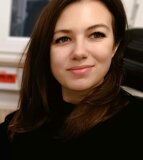
Nina Kriaj Kosi
Jožef Stefan Institute, Slovenia
Synthesis and characterization of hierarchically-structured ceria-based nanocomposites for applications in magnetically-heated catalysis

Markus Suta
Heinrich Heine University Düsseldorf, Germany
Design concepts of efficient inorganic phosphors – with and without the lanthanides
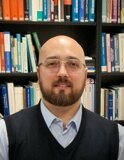
Juan Allegretto
Danube Private University, Austria
From synthesis to function: linking MOF growth mechanisms to transport behavior

Gonçalo Oliveira
University of Porto, Department of Physics and Astronomy, Portugal
Complex magnetic systems: a local probe approach
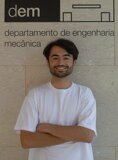
António Ferreira
University of Aveiro, Portugal
Laser welding of polypropylene
and low-density foams

Wen-Shan Zhang
Heidelberg University, Organic Chemistry Institute, Germany
Unveiling polaron spin dynamics in chemically doped organic spintronics:
a case study using TOF-SIMS and EPR
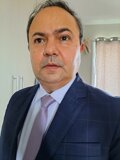
Ivaldo Leão Ferreira
Federal University of Pará, Brazil
Thermal gradient effects on
non-equilibrium phase free-energy
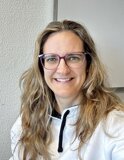
Virginia Monteseguro
University of Cantabria & CITIMAC, Spain
Synchronized electronic and magnetic behavior in Sr2FeIrO6, a 3d-5d hybrid double perovskite, up to 65 GPa

Javier Ruiz-Fuertes
University of Cantabria & CITIMAC, Spain
Crystal field–spin-orbit competition in the pressure-driven transition of Sr₂CaIrO₆
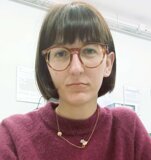
Marta Razum
Ruđer Bošković Institute, Croatia
Polaronic transport in vanadate–phosphate glasses modified with secondary transition metal oxides

Athanasios Koliogiorgos
Charles University, Department of Condensed Matter Physics, Czech Republic
First-principles investigation of electronic, magnetic and optical properties
in CrSBr-MoS2 2D heterostructures
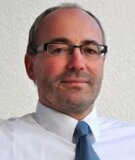
Johannes Pedarnig
Johannes Kepler University Linz,
Institute of Applied Physics, Austria
Tailoring the electrical and high-Tc superconducting properties of cuprate thin films by light-ion irradiation and nano-structuring
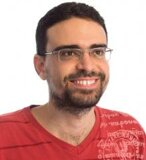
Alexandre Rocha Paschoal
Federal University of Ceará, Brazil
Study of the physicochemical properties of linear carbon chains encapsulated by carbon nanotubes

Marek Kotrlý
Institute of Criminalistics, Czech Republic
Analytical possibilities for advanced
and functional materials in the forensic science field
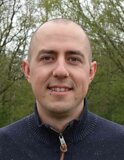
Mathias Pein
German Aerospace Center, Institute of Future Fuels, Germany
Metal oxide 3D porous structures for high-temperature thermochemical applications
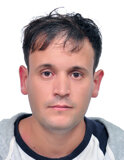
Elhassan Amaterz
University Grenoble Alpes, CEA,
LITEN, DTNM, France
Catalytic enhancement of C2H4 formation via Ag-modified Cu electrodes for electrochemical CO2 reduction in a zero-Gap electrolyzer

Cláudia Batista Lopes
University of Aveiro, Portugal
Advances in nanocomposite design for tackling societal challenges: from water decontamination to critical element recovery
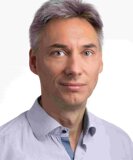
Andor Kormányos
Eötvös Loránd University, Dept. of Physics of Complex Systems, Hungary
Hexagonal SiGe and GeSn alloys:
a combined first-principles and k⋅ p investigation
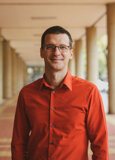
Marko Spasenovic
HTM - Institute for Chemistry, Technology and Metallurgy, Serbia
Laser-induced graphene and MXene on biocompatible polymer substrates as sensors of physiological parameters

Kwon Eunmin
Korea Maritime and Ocean University,
Dept. of Nano-Semiconductor Engineering, South Korea
Properties of Si layer on SiC substrate formed by advanced HVPE sublimation sandwich method

Dong Ho Lee
Korea Maritime and Ocean University,
Dept. of Nano-Semiconductor Engineering, South Korea
Suppression of β-phase formation during epitaxial growth of ε-Ga₂O₃ on GaN templates
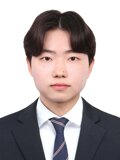
Lavinia Curecheriu
“Al. I. Cuza” University of Iasi,
Faculty of Physics, Romania
From core-shell particles to functional graded materials
Seon Jin Mun
National Korea Maritime and Ocean University, South Korea
Thermal crystallization effects on the surface, optical, and etching properties of MOCVD deposited Ga2O3 thin films


Helio Chacham
Federal University of Minas Gerais, Department of Physics, Brazil
Effects of doping and ambient exposure on 2D transition metal chalcogenides:
humidity sensing, valleytronics, and other phenomena
Alfred Błażytko
August Chelkowski Institute of Physics, University of Silesia in Katowice, Poland
Tuning rotational dynamics of molecular rotors through crystal structure manipulation


Matic Lozinsek
Jožef Stefan Institute, Department of Physical and Organic Chemistry, Slovenia
Reactive compounds explored by 3D electron diffraction
Davide Cipollini
INRiM - Advanced Materials Metrology and Life Sciences Division, Italy
In-materia computing with self-assembled memristive networks
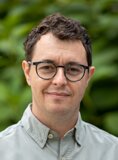

David V. Sampaio
Physics Institute, Federal University of Alagoas, Brazil
Glow-in-the-dark materials:
persistent luminescence and applications
Diego Mantovani
Laval University, Laboratory for Biomaterials and Bioengineering, Canada
Biodegradable metals and plasma-based coatings for the innovation in biomaterials and implants for regenerative and reparative medicine and health


Petr Lazar
Regional Centre of Advanced Technologies and Materials, Czech Republic
Solvent controlled generation of polarons in fluorographene under UV light irradiation
Preeti Bhobe
Indian Institute of Technology Indore, India
Local structural aspects and electron-phonon interaction in thermochromic halide double perovskites

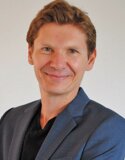
Ladislau Matekovits
Politecnico di Torino, Department of Electronics and Telecommunications, Italy
Dual-band biocompatible metamaterial absorber using TiO₂ substrate for ISM band biomedical applications
Jerome Long
University of Montpellier, Department of Chemistry, France
The bright side of Ln³⁺ single-molecule magnets: a new frontier in magneto-optical materials
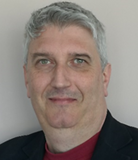

Nuria Garro
University of Valencia, Department of Applied Physics and Electromagnetism, Spain
Nanoscale insight into functionalized 2D graphene-based materials
Ildiko Peter
University of Medicine, Pharmacy, Science and Technology, Romania
Surface-functionalized Ti-Nb-Zr-Ta/Fe alloys as dual-role implant materials
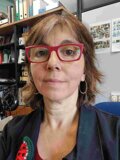

Aswathi Kanjampurath Sivan
University of Basel, Department of Physics, Switzerland
Exploring size and strain dependent phonon dynamics in Ge and Ge/Si nanowires
Riccardo Marin
Ca' Foscari University of Venice, Department of Molecular Sciences and Nanosystems, Italy
Cross-sensitivity and bias in luminescence sensing: from foes to friends


Layla Martin Samos
CNR-IOM, National Research Council – Institute for Materials, Italy
Understanding barium hexaferrite nanoparticles through multi-scale modelling
Kim Sohee
National Korea Maritime and Ocean University, South Korea
Characterization of 2H-Si microneedles grown at ultra-fast growth rates
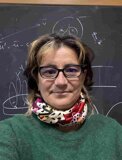
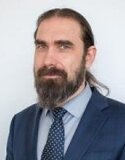
Mihails Birjukovs
Institute of Numerical Modeling, University of Latvia, Latvia
Magnetically controlled MHD bubble flow for industrial applications
Martin Kalbac
J. Heyrovsky Institute of Physical Chemistry, Czech Republic
UHV exfoliation and rational chemical functionalization of 2D materials
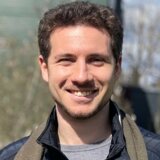
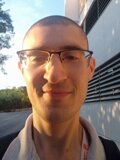
Mafalda Costa
University of Évora, HERCULES Laboratory, Portugal
From sand to artifact: geochemical pathways in ancient glassmaking
Roderick Abdilla
University of Malta, Metamaterials Department, Malta
Smart biologically derived hydrogel films for food packaging

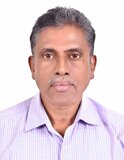
Rui Almeida
Instituto Superior Tecnico, University of Lisboa, Portugal
Sol-gel derived microcavities for
up-conversion based solid state lighting
Joseph Mangalam Antony
National Institute of Tech Calicut, India
Investigation of mechanical, and microwave absorption properties of Al-filled natural rubber composite
.jpeg)
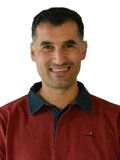
Kholoud A. Hamam
University of Jeddah, Department of Physical Sciences, Saudi Arabia
Novel Sn-based quaternary glassy thin films for optical device applications
Carlos DS Brites
University of Aveiro, Physics Dept. and CICECO - Aveiro Institute of Materials, Portugal
Photonic functional materials for information processing
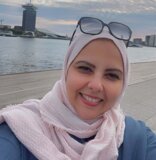

Norbert Esser
Technical University of Berlin, Germany
Raman investigations of surface vibrational modes: testing atomic surface structures
Chaikarn Liewhiran
Chiang Mai University, Department of Physics and Materials Science, Thailand
Nanostructured chemiresistive gas sensors for medical and health applications

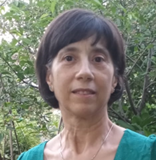
Marcelo Roldán
CIEMAT - Centro de Investigaciones Energéticas, Medioambientales y Tecnológicas, Spain
Advances in multi-scale characterization
of irradiation damage in Li-ceramic breeders for fusion applications
Maria Raposo
NOVA University of Lisbon, Department of Physics, Portugal
Organic thin films for enhanced volatile organic compound sensing: materials, mechanisms, and device integration


Monica Dinu
National Institute for Research and Development in Optoelectronics, Romania
Multi-analytical and multi-modal techniques for the investigation, characterisation, and diagnosis of CH objects
Ansis Emīls Zīvers
University of Latvia, Institute of Numerical Modeling, Latvia
Shape and collective dynamics in geometrically confined MHD bubble flow


Emanuele Orgiu
University of Quebec – National Institute of Scientific Research (INRS), Canada
Hybrid molecule/quantum material Van der Waals heterostructures
Hristina Obradović
Institute for Medical Research, University of Belgrade, Serbia
Development and characterization of human placenta–based bioinks for 3D bioprinting: toward printable scaffolds for soft tissue engineering


Pedro Alves da Silva Autreto
Center for Natural and Human Sciences (CCNH), Federal University of ABC (UFABC), Brazil
Bridging theory and experiments: computational insights into materials science
Máté J. Bezdek
ETH Zürich, Department of Chemistry and Applied Biosciences, Switzerland
Triphenylphosphine oxide: a versatile covalent functionality for carbon nanotubes
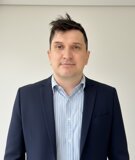
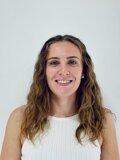
Tiago Gomes
Centre for Mechanical Technology and Automation, University of Aveiro, Portugal
Degradation assessment and properties recovery in closed-loop material extrusion additive manufacturing with PLA
Laura Prior
Center for Mechanical Technology and Automation, University of Aveiro, Portugal
4D printing of PLA/TPU structures:
from material characterization to simulation model calibration


Zoubida Taleb
Djillali Liabes University, Faculty of Exact Sciences, Algeria
Cationic polymerization of n-BVE catalyzed by a non-toxic Mag-H montmorillonite clay
Joseph Peet
ESPCI Paris, France
NMR relaxation and conduction behaviour in remarkable layered oxide Rb2Ti2O5

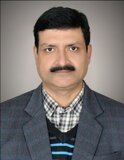
Prosenjit Das
Department of Materials Engineering, Indian Institute of Science, India
Coupled CFD-phase field model of microstructure evolution of laser powder bed fusion processed IN718 superalloy
Prabhakar Singh
Indian Institute of Technology (BHU) Varanasi, Department of Physics, India
Electrocatalytic hybrid proton exchange membranes for sustainable hydrogen production

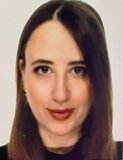
Chandan Upadhyay
Indian Institute of Technology (BHU), School of Materials Science and Technology, India
Role of chemical pressure and magnetic disorders in rare-earth spin-ices
Candida Moffa
Sapienza University of Rome, Italy
Advancing non-invasive cultural heritage analysis through THz multispectral imaging: methodology development and application to a 16th century illustrated book
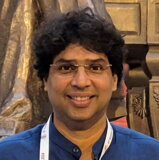
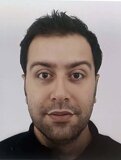
Hazar Guesmi
CNRS - Charles Gerhardt's Institute of Montpellier, France
Learning to predict reactivity:
modeling gold nanoparticles under
hydrogen with DFT-based ML potentials
Hamed Gramizadeh
University of Iceland, Iceland
A generalized localization framework
for ab initio electronic structure

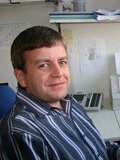
Ingo Salzmann
Concordia University, Dept. of Chemistry and Biochemistry & Dept. of Physics, Canada
Mechanistic control of charge transfer in organic semiconductors through dopant structure and post-transfer reactivity
Norbert Nickel
Helmholtz-Zentrum Berlin für Materialien und Energie, Germany
Hydrogen diffusion and hybrid orbital formation of hydrogen atoms and molecules in Ti3C2 MXene

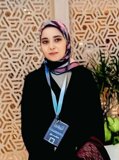
Pouriya Naziri
Koç University Boron and Advanced Materials Application and Research Center, Turkey
Synergistic silver doping and halide passivation for stable, efficient CsPbI3 quantum dots for LED applications
Ihssen Boudjemline
Saad Dahlab Blida 1 University, Physics Department, Algeria
Structural and spectroscopic properties of sensitive SnO2-ZnO heterostructures
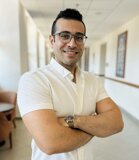
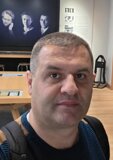
Ricardo Henríquez
Federico Santa María Technical University, Chile
Improving the electrical response of metal oxide-based sensors
Avni Berisha
University of Prishtina,
Department of Chemistry, Kosovo
Insights into neutral vs. deprotonated phenol adsorption on graphene oxide


Savita Pannu
Institute for Plasma Research, India
Tailoring morphological and magnetic properties of iron oxide nanoparticles prepared via thermal plasma under applied magnetic field
Mandla Msimanga
Tshwane University of Technology,
South Africa
Ion beam irradiation of PANI-PMMA nanocomposite films: structural and electrical properties
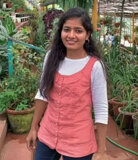

Aleksandra Skiba
Warsaw University of Technology, Poland
Material choice matters: screen-printed vs. PVD gold electrodes for electrochemical biosensors
Tapankumar M. Patel
Homi Bhabha National Institute (HBNI), India
Investigation of copper to stainless steel friction welds: experiments, in-situ temperature measurement, and simulation


S’busiso M. Nkosi
Mangosuthu University of Technology, South Africa
Synthesis and application of molecularly imprinted polymers-solid phase extraction procedure for the analysis of selected pharmaceuticals in vegetable samples